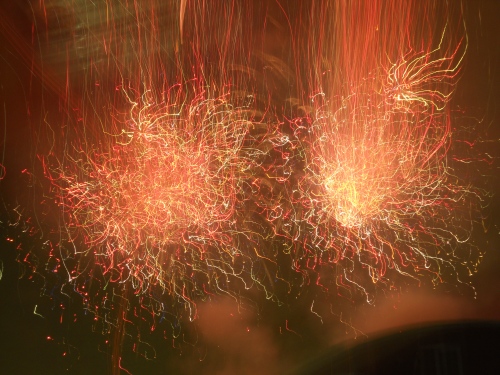As always, I have arrived at my family home in New Hampshire happily laden with books and full of dreams of writing. I intend to post here on Writing with Spirit more often, I’m working on a draft of my memoir, and I’ll begin a month-long online writing class next week. You will likely hear about some or all of these pursuits. Meanwhile, I have finished my first book of the trip, Richard Rohr’s “What The Mystics Know: Seven Pathways to Your Deeper Self.” I thought I’d share a short review because it’s rare that a “spiritual” book so completely jives with what we call “reality.”
And what a reality! As if things weren’t surreal enough lately, the President just celebrated Independence Day with a speech attacking what polls show is a majority of Americans who support the removal of confederate statues from places of honor. He aggressively stoked fear and hatred and division. But all this is nothing new. As he tries to distract us from the deadly pandemic that worsens daily, there will no doubt be more race-baiting and ugliness emanating from the White House.

Orange Fireworks
But back to the book:
I liked this little book. If you’ve read much Richard Rohr, you will find it familiar, with good reason: it’s a book of excerpts from his other writings. I could quibble with the structure of “Mystics;” the “seven pathways” seem forced and kind of random. This is probably because the editor who came up with the idea died part way through the writing, so I think the big picture may have been lost. But since the readings are in small bites, and the book doesn’t pretend to be a straight narrative, the structure isn’t too distracting, and there are plenty of wonderful Rohr nuggets throughout. This makes a fine daily reader for meditation and journaling, and I think I’ll be using it for years to come.
If you haven’t read Rohr, I recommend “Everything Belongs,” my favorite. But “Mystics” is a decent summary of his beliefs about spiritual growth and enlightenment, including growing out of our egoic self-preoccupations and into more compassionate non-dualistic thinking, less “othering” and judging.
It’s unusual for a “mystical” book to track so directly with the day’s headlines, but it’s impossible not to think about my fellow Americans refusing to wear masks because it “infringes on their freedom” when doing so would literally save the lives of others — talk about sick egos! Or about millions of white people yammering about their their precious “heritage” of slave-holding while demonizing black people being murdered in our streets and jails by law enforcement officials. Some seem more concerned about statues made of stone than their fellow citizens made of flesh and blood. Wrong color flesh, it seems.
Also timely, the last section of Father Rohr’s book centers on transforming others and society, and is hopeful but realistic. He recognizes that in North America, “our economy, our self-image, our very psyche have lived in a triumphalist and paranoid stance for so long that it will be hard to change to a positive and creative mode . . . a new way of living based on faith instead of fear, peacemaking instead of moneymaking, community instead of competition.”
May it be so!








